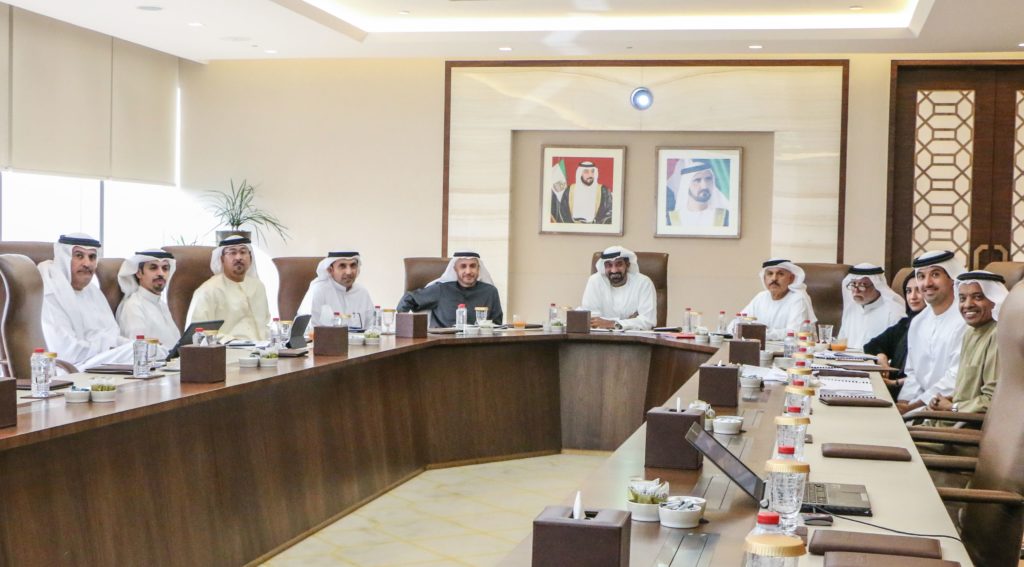The 11th meeting of the Dubai Free Zones Council (DFZ Council), headed by His Highness Sheikh Ahmed bin Saeed Al Maktoum, Chairman of the DFZ Council, announced plans to develop a comprehensive geo-economic map of Dubai in line with the Fifty-Year Charter that aims to position Dubai as a leading destination for investment and business set-up.
His Highness Sheikh Ahmed bin Saeed Al Maktoum said: “In January 2019, His Highness Sheikh Mohammed bin Rashid Al Maktoum, Vice President and Prime Minister of the UAE and Ruler of Dubai, issued the Fifty-Year Charter that aims to enhance the quality of life, strengthen Dubai’s community, and build a better future for the generations to come. In line with Article 2 of the charter, the DFZ Council has begun working on a comprehensive geo-economic map of Dubai that will assign economic objectives to each geographical area to advance the economic diversification of the emirate. The map will also support the other eight articles of the charter, especially Article 1 that focuses on the Dubai Silk Road.”
The DFZ Council is mapping the economic landscape of the city with the support of the Department of Economic Development, Dubai Chamber of Commerce and Industry, Dubai Development Authority, Jebel Ali Free Zone, the Dubai International Financial Centre, Dubai Customs, Dubai Municipality, the World Free Zones Organization, and the Ministry of Economy.
At the meeting, council members discussed the integral role of Dubai’s free zones in developing the framework for achieving the objectives of the Fifty-Year Charter. Their key contribution stems from their experience in devising and implementing successful initiatives aimed at diversifying sources of income, and attracting local, regional, and global investments, which ultimately helps build a sustainable economy.
The DFZ Council members also reviewed the progress of the e-commerce initiative, especially in terms of logistics and data collection, and explored opportunities to consolidate Dubai’s status as a regional e-commerce hub. Through meticulously integrated procedures and plans, the initiative seeks to increase the impact and contribution of e-commerce to Dubai’s GDP to a targeted AED12 billion by 2023.
Furthermore, the participants weighed the benefits of establishing direct links between free zones in Dubai and Dubai Statistics Center to enable immediate access to data to complement the unified database project. All technical preparations for this step have been completed.
In addition, the members examined several proposed initiatives to enhance consumer confidence and reduce the costs of doing business in the virtual e-commerce marketplace. These included establishing unified e-commerce regulations, defining the responsibilities of each platform, developing comprehensive legislation in line with global standards, supporting startups and SMEs, introducing product registration systems, and streamlining recruitment in warehouses and distribution centers of e-commerce companies.
The councilmen were briefed on measures to improve compliance with international tax standards, particularly European, for businesses in free zones. These measures will ensure transactional transparency in various sectors, including banking, insurance, fund management, finance leasing, freight, holding companies, intellectual property, supply chain, and services.
The members also discussed ways to facilitate opening bank accounts for companies, especially SMEs, in cooperation with banks and other players in the finance sector towards strengthening the nation’s global competitiveness in ease of doing business.




